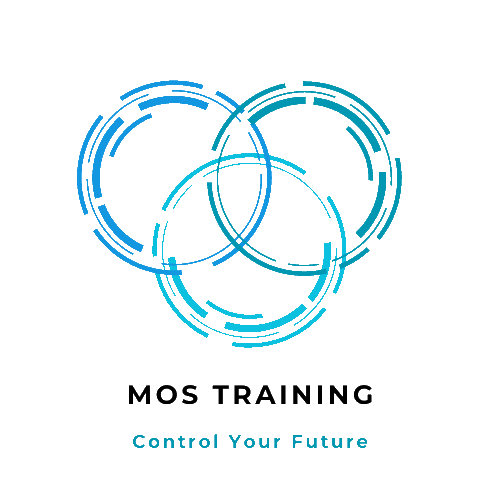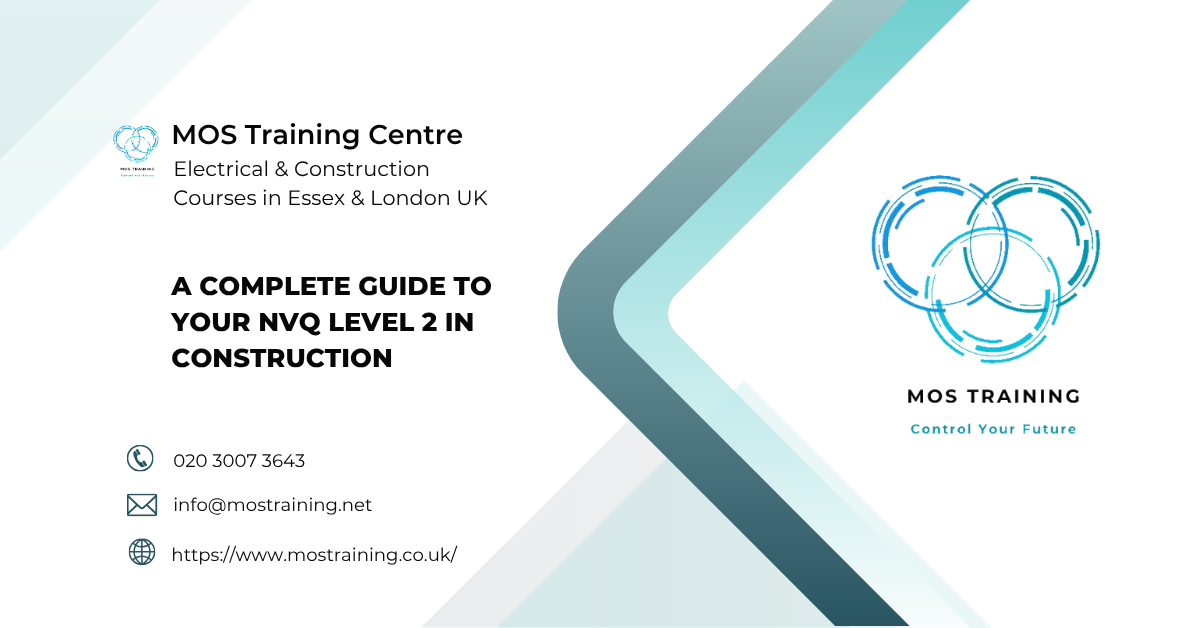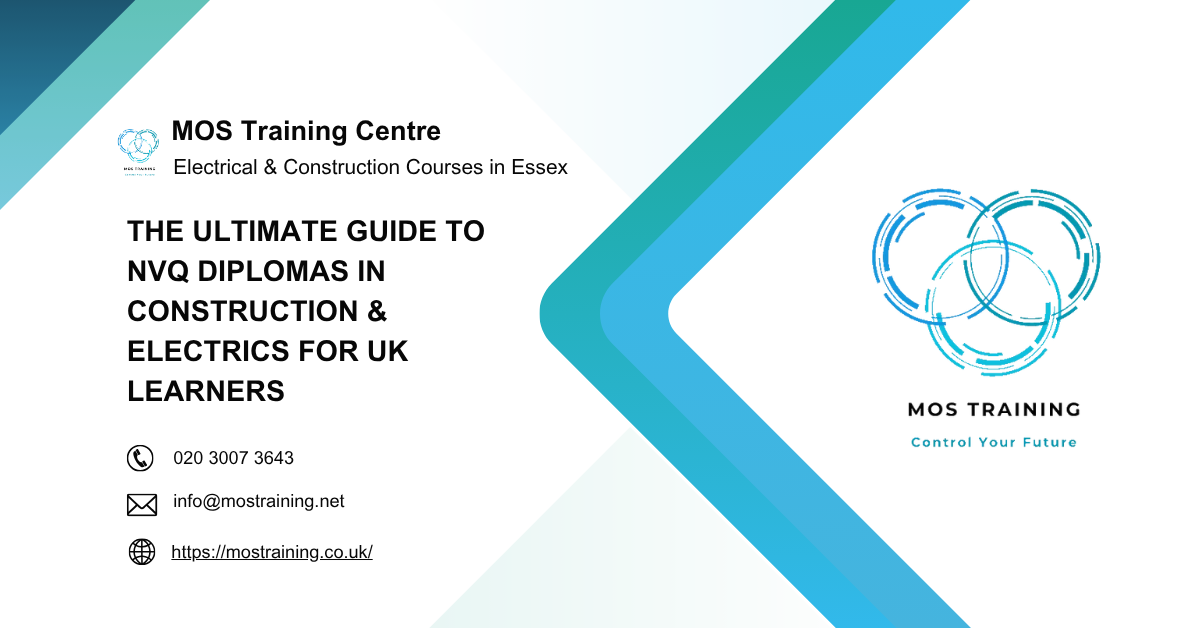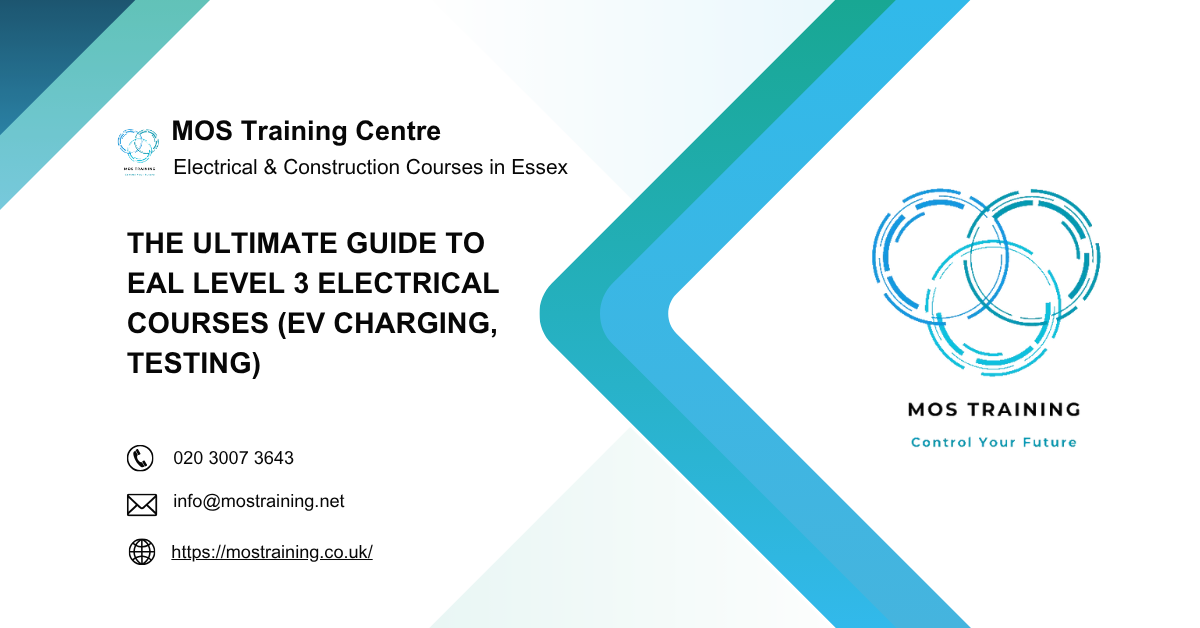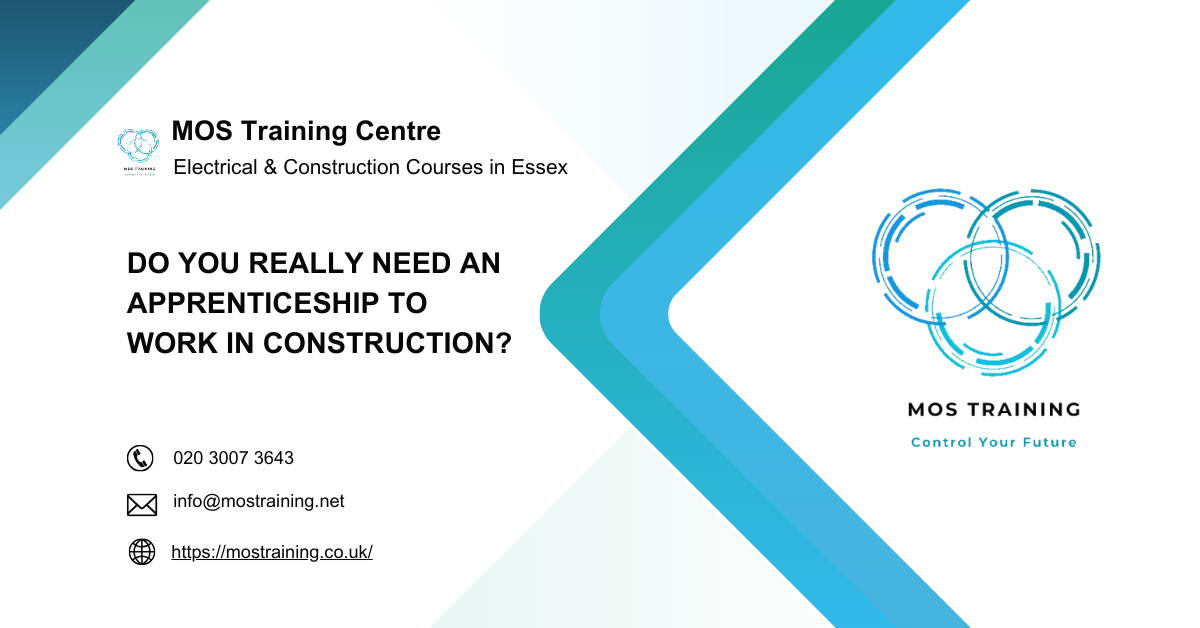Understanding NVQ Level 2 in Construction
What’s an NVQ and Why Does It Matter?
An NVQ, or National Vocational Qualification, is a practical way to show that you’re good at your job. It focuses on what you can do in your day to day work rather than testing theory through written exams. NVQ Level 2 in Construction is widely recognised across the UK and is designed for people who want their practical construction skills officially recognised.
Whether you work in bricklaying, painting, joinery or groundwork, this qualification confirms that you meet industry standards. Employers often ask for NVQ certification when hiring workers who understand health and safety regulations, follow site procedures correctly and can consistently deliver quality workmanship.
Here's What We Have Covered In This Article
What Does NVQ Level 2 in Construction Involve?
This qualification is built around practical tasks performed on site. You will collect evidence while working, such as photos, witness statements, method statements and task write ups. These form part of your portfolio which is reviewed by a qualified assessor.
The NVQ Level 2 covers core construction practices including site preparation, safe use of tools and equipment, interpreting drawings and completing tasks to specified standards. There are also trade specific elements depending on your specialism, such as plastering, roofing or formwork. Everything you complete must align with the National Occupational Standards set by the construction industry.
Who Can Take NVQ Level 2 in Construction?
The qualification suits:
-
Labourers and operatives already working on site
-
Skilled workers without formal qualifications
-
Career changers joining the construction sector
If you’re already working in construction and want a formal record of your abilities, this NVQ is a practical step forward. No exams. No classrooms. Just real work backed by proof of skill.
Pro Tip 1: Save Time with Voice Notes: If writing out tasks takes too long, ask your assessor if you can submit voice notes. Many accept audio as valid portfolio evidence.
Structure, Pathways and Assessment
What Are the Main Benefits of NVQ Level 2 in Construction?
Holding an NVQ Level 2 shows employers that you meet agreed professional standards. It often opens doors to better job offers, steady contracts and eligibility for a Blue CSCS card. Many learners also use it to access structured apprenticeships or higher level training.
It can improve your earning potential and job security. The qualification is practical and flexible. Your assessor visits you on site, so you continue working while progressing.
What Are the Entry Requirements?
There are no formal educational requirements. However, you need to be working in a construction related role so your skills can be observed. A basic understanding of spoken and written English is needed to follow instructions and complete basic documentation.
What Will You Learn in NVQ Level 2?
Mandatory units often cover:
- General health and safety
- Efficient work practices
- Communication and teamwork
- Handling and storing resources
Optional units vary by trade. For instance:
- Bricklaying may involve constructing solid walls
- Joinery can include installing floors and staircases
- Drylining might involve installing metal stud partitions
Each NVQ is structured to suit your trade and working environment.
Which Trades Can You Choose for NVQ Level 2?
Options include:
- Bricklaying
- Carpentry and Joinery
- Plastering
- Painting and Decorating
- Roofing
- Groundworks
- Interior Systems
- Plant and Hoist Installation
- Roadbuilding and Maintenance
- Precast Concrete Installation
Explore the full list of pathways and CITB standards here.
Pro Tip 2: Mention Green Skills in Your Evidence: Employers value eco-conscious workers. Show your understanding of insulation, airtightness or sustainable materials where relevant.
The NVQ Journey – From Enrolment to Certification
How Does the NVQ Level 2 Assessment Work?
Assessment happens on your job site. Your assessor checks how you carry out tasks and whether your work meets recognised standards. You collect evidence like photos, signed job sheets, witness statements and method statements. These build your portfolio.
Assessment also includes knowledge based questions about procedures, safety and tools. You don’t need to take exams. The focus stays on your day to day role.
How Long Does NVQ Level 2 Take?
It typically takes six to twelve months. This depends on how often you work, your trade and how quickly you gather evidence. The qualification is flexible, and assessors work with your schedule.
What Does NVQ Level 2 Cost and Can You Get Funding?
Costs range from £800 to £1500. You might be eligible for government funded routes or employer sponsored schemes. Some learners qualify for Adult Education Budget or CITB training grants.
What Should You Look for in a Training Provider?
Choose one approved by awarding bodies like City and Guilds, NOCN or Pearson. Look for providers that offer structured assessor support and have good reviews from past learners.
On Site Assessment and Training (OSAT) is ideal for experienced workers. It lets you qualify while staying on the job. Ask providers if they offer OSAT routes for your trade.
After NVQ Level 2 – Careers and Growth
What Kind of CSCS Card Can You Get with NVQ Level 2?
After completing NVQ Level 2, you can apply for the Blue Skilled Worker CSCS card. This shows employers that you meet a nationally recognised skill level. It’s different from the Green Labourer card, which is usually for entry level roles.
To apply, you need your NVQ certificate and you must pass the CITB Health Safety and Environment Test. The full process is explained on the CSCS card website.
Where Can You Go After NVQ Level 2?
Some workers move on to NVQ Level 3. This covers supervisory tasks and more complex activities. Others pursue higher education in construction. For example, the University College of Estate Management (UCEM) accepts NVQ Level 2 as part of the entry criteria for:
- Diploma of Higher Education (DipHE) in Surveying Practice
- Certificate of Higher Education (CertHE) in Building Control
These options help you transition into technical and compliance based roles like surveying, inspection or site management.
Real Examples from the Workplace
One plasterer used NVQ Level 2 to get a site supervisor role. A dryliner in South London got his Blue card, gained more independence and started subcontracting. A general operative used the qualification to retrain in formwork carpentry and increase his hourly rate.
NVQ Level 2 is a solid base for anyone who wants to grow within the trade or move towards planning and regulatory roles.
Common Challenges and How to Deal with Them
People often struggle with time management. Set aside time each week to collect evidence. Speak regularly with your assessor. If reading or writing is hard, ask your provider for support. Templates and voice notes are accepted by some assessors.
If your current job does not cover all required tasks, your employer can help you gain access to different jobs or projects.
Additional Insights, FAQs and Final Thoughts
Should You Choose Online or In Person NVQ Training?
In person NVQ routes give you direct access to your assessor. Online formats use platforms where you upload photos and documents. Some providers use video calls for support. Both formats are valid. The choice depends on how you prefer to work.
Assessment still happens on a real site. You need access to tools, materials and daily construction tasks.
Which Niche Trades and Specialisms Are Available?
In addition to common trades, NVQ Level 2 also includes:
-
Ceiling Fixing and Drylining
-
Hoist Operations
-
Road Maintenance
-
Precast Concrete Assembly
-
Construction Using Off Site Assemblies
These options give recognition to workers in specific fields that are growing with modern building techniques.
Do Sustainable Construction Skills Help You Get Hired More?
Yes. More employers are looking for workers who understand insulation, airtightness and low carbon materials. Some NVQ units now include these themes.
Including sustainable methods in your evidence shows that you understand where the construction industry is heading. It can also help if you want to work in retrofitting, eco homes or public sector contracts with green targets.
Frequently Asked Questions
Is NVQ Level 2 hard to complete?
If you already do the work and follow safety rules, you are likely to pass. The NVQ checks that your skills match the national standards.
Can you fail an NVQ Level 2?
You don’t pass or fail in one go. If something is missing, your assessor will ask you to add it. You can keep updating your portfolio until it’s complete.
Do you need work experience to start?
Yes. You must already be in a construction role. That way, assessors can observe your work in real conditions.
Does NVQ Level 2 lead to further study?
Yes. UCEM and other providers accept NVQ Level 2 when applying for courses like building control or surveying. It helps you take on more responsibility or shift into specialist roles.
Is NVQ Level 2 part of an apprenticeship?
It can be. Many construction apprenticeships include NVQ Level 2 as the skills based element. This gives you a recognised certificate while gaining experience.
What Are the Final Steps After Getting Your NVQ Level 2?
Once you receive your certificate, apply for your CSCS card and update your CV. Talk to your employer about new opportunities and consider whether you want to start Level 3 or explore specialist training.
If you are interested in inspection, supervision or planning, look into courses through UCEM or local colleges that build on your NVQ.
Start Your NVQ Level 2 Today
Ready to prove your skills and qualify fast? We help you get certified while staying on-site.

